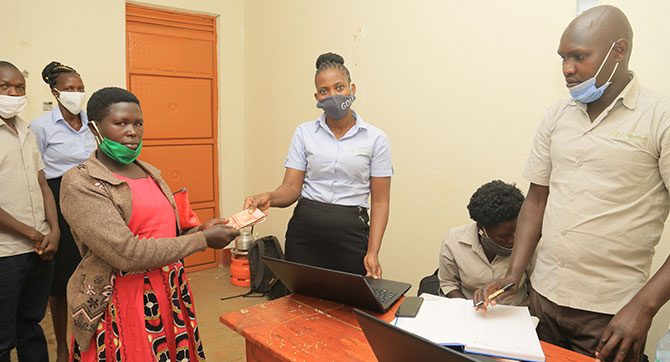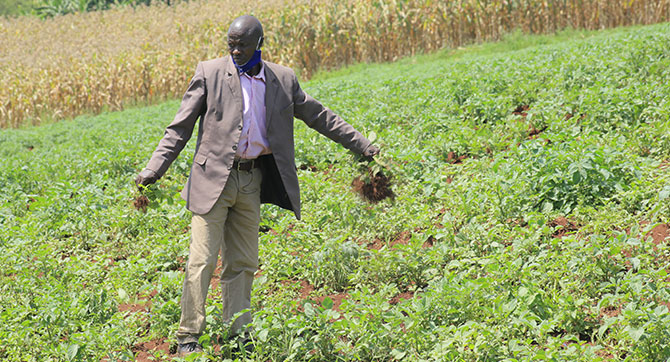
In its different countries of operation including Uganda, ABInbev experienced that farmers lose part of their income on a seasonal basis because of fluctuations in the weather. This is either flooding, or dry periods thus during crucial growth stages, the farmer then loses money because of a decrease in his harvest. These occurrences have a very negative effect on the cash flow of the farmers.
Crop insurance was initiated by ABInbev NBL’s parent company to mitigate such risks faced. “Given our long standing commitment to farmers, we sought out a way to solve this dilemma as most farmers around the world lack financial safety nets to sustain bad season or grow their business,” said Theunis Coetzee Agro Manager NBL.
Farmers are a critical part of NBL value chain and are key for the sustainability of the business. Currently, NBL has up to 25,000 farmers (15,000 for barley and 10,000 sorghum) in Eastern and South Western Uganda and spends up to Shs60.7Bn on buying produce. “We could not use conventional insurance because on-site inspections to determine the level of damage are too expensive. ABInbev then determined that the concept of index insurance where claim payment are linked to data observation will work in Uganda. After engaging with several service providers in that field, it was decided to do a pilot with OKO, an agriculture insurance company,” Coetzee added.
The pilot project can successfully provide insurance to 60% of barley farmers. Currently, 1,631 are registered. Nile Breweries Ltd paid the first batch of farmers (26) under its crop insurance scheme last week a total of Shs12, 366,500, with each farmer receiving payout as per their premium. The crop insurance process was incorporated into Banqu (the blockchain system used by NBL to engage with the farmers) and the payments to the farmers will be done through the Banqu system. Banqu is operated via mobile phone, allowing farmers to track quantity and quality of supply and get paid via Mobile Money.

“The biggest impact on our farmers is that they will have the cash flow to honor their financial obligations, like paying for inputs and school fees even if they don’t have the full harvest income that they budgeted on. This will help to ensure their feasibility as farmers over the long term,” said Onapito Ekomoloit, Legal and Corporate Affairs Director.
ABInbev‘s agriculture sustainability goal is to have 100% of its farmers skilled, connected and financially empowered by 2025. One of the ways it is doing this is by working with smallholder farmers within our supply chain, enhancing their economic opportunities through different partnerships. “ABInBev has ambitious sustainability goals and is looking for solutions to achieve those goals. They selected OKO to be part of the 100+ Accelerator programme which involves setting up a pilot in one of the operating markets. We brought our solution to NBL in Uganda,” said Simon Schwall, Founder & CEO OKO.
“We bring affordable and automated crop insurance to smallholder farmers via mobile. These are innovative insurance products which automatically compensate farmers when insufficient or excessive rainfall is observed in their location,” he added. The 100+ Accelerator is a project towards achieving ABInbev sustainability goals 2025 in which the company seeks out partners who can deliver breakthrough advancements in water stewardship, farmer productivity, product upcycling, responsible sourcing, green logistics and more. Partners operate in the different countries where AB Inbev, the world’s biggest Brewer has breweries.
“Our Dream as a company is to bring people together for a better world. We not only provide quality seed to farmers, but support them to use best farming practices and also buy produce. We also support our farmer communities through various initiatives like water stewardship, financial literacy, scholarships among others,” highlights Onapito.